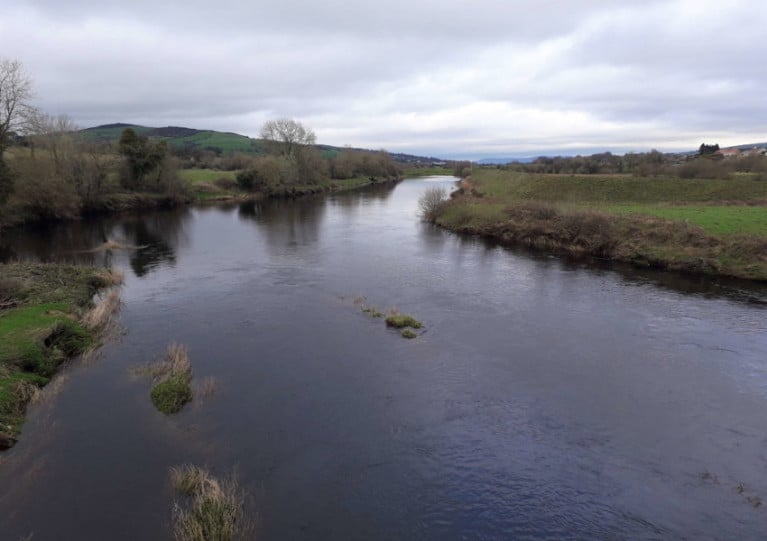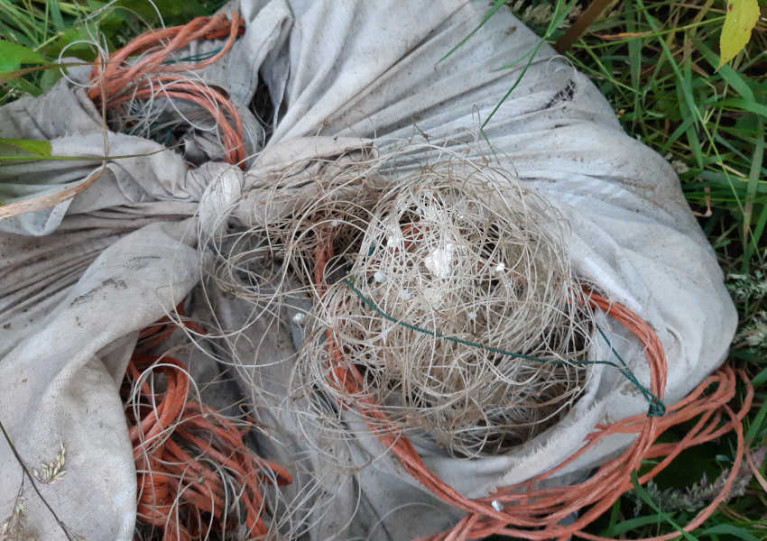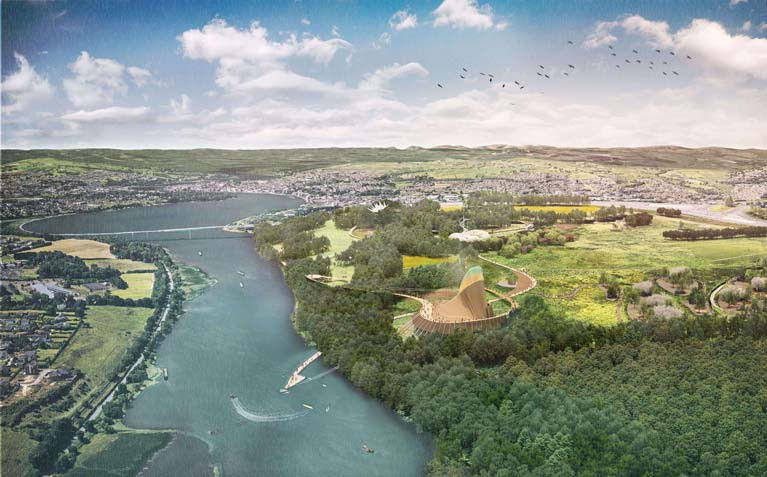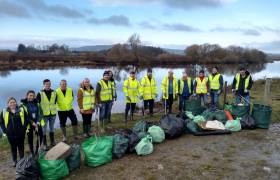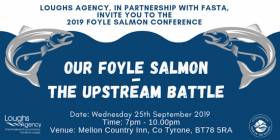Displaying items by tag: River Foyle
One Airlifted to Hospital After Jet Skiing Incident on River Foyle
One person was airlifted to hospital after a personal watercraft ran aground on the River Foyle, as the Belfast Telegraph reports.
The Irish Coast Guard’s Sligo-based helicopter Rescue 118 was dispatched to the incident in Lisahally, Co Derry last night (Saturday 25 September) in which one person is said to have sustained a serious head injury.
That casualty was airlifted to Altnagelvin Area Hospital in Derry, while another individual was rescued by a team from Foyle Search & Rescue.
Coastguard units from Greencastle in Co Donegal and Coleraine were also in attendance as part of the multi-agency operation, along with the PSNI and Northern Ireland Fire and Rescue Service.
The Loughs Agency has announced that angling permits for its waters on the River Finn and River Foyle, including the Greenbraes, are now available to purchase online.
Online permits will make angling in these rivers even more accessible, particularly during the current COVID-19 government restrictions when many tackle shops are closed.
Loughs Agency permits provide access to some of the best quality fishing locations in the Foyle system, which is famous for its salmon and trout angling.
The River Foyle is a large tidal river that begins its seaward journey near Strabane in Co Tyrone and Lifford in Co Donegal at the confluence of the River Mourne and River Finn, spilling into Lough Foyle at Culmore Point in Co Derry.
Along its length are several fishing hotspots, including Mary’s Pool, the Gribben, Corkan Island and the Backwater, where anglers can cast a line for salmon, brown trout and sea trout.
The Finn is a well-known spate river for spring fish, but it also maintains a good run of salmon throughout the season. Sea trout fishing is best from July to mid-August.
For the 2021 season, the regulations for the River Foyle and Finn require total catch and release for all salmon caught, and anglers must use single barbless hooks.
For more information on fishing in the Foyle catchment, visit the angling section of Loughs Agency's website. To purchase a permit, visit the Loughs Agency's elicence website. Prices are as follows:
- River Finn permit: £20/€24 for adults £10/€12 for juveniles
- River Foyle permit: £20/€24 for adults £10/€12 for juveniles
- Greenbraes morning permit: £15/€17 8am to 3pm
- Greenbraes afternoon permit: £18/€20.50 4pm to midnight
Illegal Nets Removed From River Foyle Fishery
Loughs Agency fishery officers recovered illegal nets in two separate incidents on the River Foyle last weekend.
In the first of these, fishery officers seized a 150m-long net containing 28 salmon at an area known as Rosses Bay.
A sea trout, millet and flounder were also caught in the net, which was found in an important holding water for salmon on their journey to the tributary rivers upstream.
Protection of this area is vital to ensure salmon populations are sustainable, the Loughs Agency says.
In a separate incident, another illegal net was seized on the Foyle at Porthall in Co Donegal after reports from a member of the public about suspicious activity near the river.
The net showed signs of recent use, with fresh salmon scales visible. The net was seized and will be destroyed once a court order has been granted.
Loughs Agency encourages the public to report suspicious activity directly and promptly using the 24-hour Response Line at +44 (0) 2871 342100 or through the WaterWatch reporting tool on its website.
The Eden Project Comes to Derry's River Foyle
East of the City of Derry on the River Foyle are the Foyle Bridge and Culmore Point and it is here on the northern banks of the river that the Eden Project Foyle will be located.
The project, developed by the Foyle River Gardens charity, is an ambitious plan to transform the banks of the river, linking the Boom Hall and Brook Hall estates and giving the public access to previously inaccessible land. Boom Hall, derelict now, was a grand house built in 1779 where the boom was anchored during the 1689 Siege of Derry. Brook Hall dates from around the same time and is currently a well-maintained demesne.
This exciting development was officially launched this week and promises to be a new riverside cultural and environmental tourist attraction which will transform the waterfront. Eden Project Foyle would be a beacon of cultural tourism and a community asset helping to drive social, economic and environmental regeneration in the city.
The artist’s impressions of the proposed project centrepiece show a spectacular building inspired by Neolithic architecture and connected with a network of walkways. Inside the building would be a performance area and play spaces. Visitors would be able to walk on the roof and take zipwires down to the walkways. The structure would be nestled within the trees and inspired by the forest, with a timber and thatch construction which is light, efficient and low-carbon.
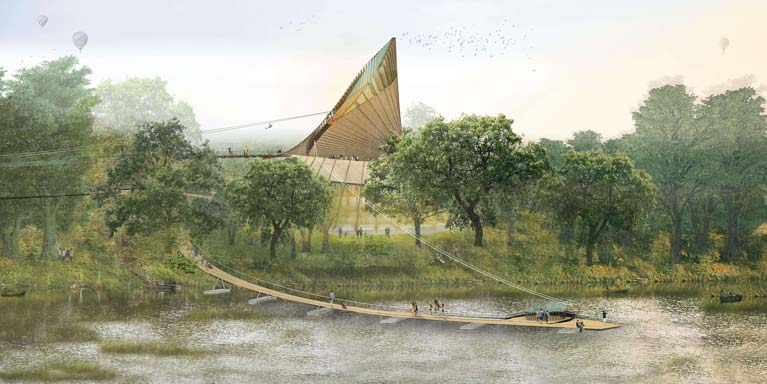
The development intends to rejuvenate the site extending from the Foyle Bridge towards Culmore Point and plans include walled gardens, tree-top and floating walkways, a water activity centre and play areas. The 100-hectare (250-acre) site includes 2.5 kilometres (1.5 miles) of the River Foyle’s bank.
Eden Project International and Foyle River Gardens estimate that the project will cost £67m and will open in summer 2023, with construction beginning in the next 18 months and is projected to directly create more than 170 jobs onsite and within the local supply chain, supporting a further 2,057 from off-site visitor spend, and inject £62m into the regional economy every year.
A charitable trust, the Foyle River Gardens, will own the project which will be operated in partnership with the award-winning environmental and educational charity the Eden Project. The partners were encouraged by the UK and Irish Governments including the project in the recent New Decade, New Approach deal on restoring powersharing to the Northern Ireland Executive.
Eamonn Deane, Chair of the Foyle River Gardens charity, said: “Eden Project Foyle brings together a network of local partners and supporters from universities, businesses, statutory and social organisations to address issues which affect each of us. The relationship with the Eden Project has been built up over the last three years and we are delighted to be able to move this project forward together.”
Sir Tim Smit, Co-founder of the Eden Project, said: “We are hugely excited to be working with the Foyle River Gardens in the creation of Eden Project Foyle and believe completely in its transformative capacity to draw visitors to the North West and become a global must-see destination. “Having our project named by the Irish and UK Governments in their New Decade, New Approach document is a huge vote of confidence for the team and we are looking forward to working with our partners in Derry and Donegal to bring this project forward.”
Eden Project is an educational charity and its main goal is to educate the public about the natural world. Eden Project International is the global division of the Eden Project, a landmark attraction in Cornwall which has welcomed more than 21 million visitors and contributed more than £2bn to the regional economy in south-west England.
Volunteers Pitch In To Help Clean Up River Foyle
In recent weeks the Loughs Agency has been working with groups of volunteers to clean up the banks of the River Foyle in Northern Ireland.
The Foyle Ambassadors, a group of young environmentalists, completed a clean-up on the upstream bank of the River Foyle near the Strabane Canal with the help of TV presenter Joe Mahon and his crew who were filming in the area. Between them they removed over a dozen bags worth of rubbish.
Elsewhere, a team of Ulster Bank branch managers completed litter pick on the banks of the River Foyle close to the mouth of the old Strabane Canal.
Local director Chris McGuinness said: “Even though the amount of plastic waste was shocking, this was an enjoyable and very worthwhile activity for our team. We would definitely be interested in doing of this sort of environmental activity in the future.”
Finally, a group of volunteers from technology firm Seagate took part in a bank clean-up downstream of the Strabane Canal, removing close to 30 bags of rubbish. The volunteers said they could not believe how much plastic waste had accumulated in such a beautiful location.
The agency’s community engagement officer Allan Bogle said: “This is the most rubbish I have seen collected during a volunteer litter pick. It is a great feeling to return this natural area to the way it is supposed to look.”
Loughs Agency chief executive Sharon McMahon added: “Rivers are an important habitat for fish and wildlife. Sadly, pollution, including litter and plastic gather in and along the rivers, often in remote places.
“River clean-ups are a great way to improve our rivers and make them a more enjoyable place to visit. As part of our community engagement programmes we are pleased to facilitate opportunities which enable the local community to take an active part in improving their environment.”
For more information on volunteer opportunities with the Loughs Agency, contact Allan Bogle at [email protected]
‘Our Foyle Salmon’ Conference In Omagh Next Month
The Loughs Agency is teaming up with the Foyle Association of Salmon and Trout Anglers (FASTA) to host an evening salmon conference in Omagh, Co Tyrone next month.
Our Foyle Salmon – The Upstream Battle at the Mellon Country Inn from 7pm on Wednesday 25 September will hear from speakers on a range of issues including the status of salmon in the River Foyle, current research, threats and steps that can be taken to sustain and protect the species.
This is a fully ticketed event; tickets are free and available through Eventbrite with a maximum of two tickets per transaction.
When registering for tickets you can also submit a question to the panel for the Q&A session at the conference.
First Foyle Regatta For Sailors With Disabilities
#Regatta - The recently established Foyle Sailability will host its first regatta for people with disabilities in Derry this Thursday and Friday 16-17 May, as the Derry Journal reports.
Volunteers from Lough Foyle Yacht Club, Lough Swilly Yacht Club and Moville Boat Club will be on hand, joined by volunteers from Belfast Lough Sailability for the two-day event which marks the first time that a fleet of accessible dinghies has cruised together on the River Foyle.
People with disabilities across the northwest are invited to try out sailing for themselves by contacting Foyle Sailability at 71 266 593 or [email protected].
The regatta will meet at the Foyle Pontoon at Riverfront Walkway off Baronet Street from 11am to 3pm each day of the event.
#News - UTV News reports that a body recovered from the River Foyle on Thursday 9 May is that of missing Dublin teenager Kieran McKeon.
The 18-year-old was reported missing two months ago along with a friend, 21-year-old Alexandra O'Brien, whose body was found in the water close to Foyle Bridge in Derry on 14 March, as previously reported on Afloat.ie.
It's thought that the two took their own lives in a suicide pact, after eyewitness reports described two people falling into the river from the bridge.
Personal items said to belong to O'Brien and McKeon were found on the bridge which sparked off the search operation led by Foyle Search and Rescue, which had continued every evening since at low tide, with a full search once a week.
UTV News has more on the story HERE.
#News - BBC News reports that the body of a 21-year-old woman from Dublin has been recovered from the River Foyle in Derry.
The body of Alexandra O'Brien was found by the Foyle Search and Rescue Team assisted by the PSNI and Sligo coastguard on Thursday evening in an operation that began after personal belongings were found on the Foyle Bridge.
O'Brien was last seen in Derry on Thursday morning with friend Kieran McKeon, 18, who is also missing.
According to the Irish Independent, it's feared that the two may have taken their own lives in a suicide pact amid eyewitness reports that they were seen falling into the river from the bridge.
Anglo-Irish Relationships
#NAVAL VISITS- HMS Tyne (P281) the leadship of four River-class Fishery Protection Vessels is due to dock in Dublin Port tomorrow, in the meantime her allocated berth is currently taken by a former Royal Navy (RN) vessel now serving in the Irish Naval Service (INS), writes Jehan Ashmore.
The INS L.É. Ciara (P42) docked at Sir John Rogersons Quay (berth No.8) yesterday evening after spending the previous day with a call to Dun Laoghaire Harbour's St. Michaels Wharf. Tomorrow she is due to depart in advance of HMS Tyne's morning arrival.
Unusually she and her three sisters are leased to the RN from BAE Systems (who retain responsibility for any major maintenance and upkeep) and shipbuilding partners, Vosper Thornycroft, Southampton which built all of the River-class. To read more about the quartet click HERE.
L.É. Ciara was originally launched as HMS Swallow (P242) at Hall Russell Shipyard, Aberdeen and in 1984 was commissioned for the RN, forming one of five 'Peacock' class coastal patrol vessels (CPV). She served her entire RN career with sisters designed specifically for the Hong Kong Squadron.
In 1988 the INS purchased her alongside a sister HMS Swift (P243) and the pair set sail from the UK colony for Cork Harbour. L.É. Ciara and her sister which became L.É. Orla (P41) were commissioned into the service after a ceremony performed by An Taoiseach C.J. Haughey at the Naval Base in Haulbowline.
Amongst the eight-strong INS fleet is L.É. Emer (P21) commissioned in 1978, an improved version of the Deirdre-class offshore patrol vessel (OPV). She appeared along with a sister of the River-class ship, HMS Severn in the Irish language river series 'Abhainn' which returned to our screens on RTE 1 last month, during the episode about the River Foyle /An Feabhal. The naval vessels were attending 'Foyle Days' in May as previously reported on Afloat.ie
- Irish Naval Service
- Dublin Port
- naval service
- Royal Navy
- Dun Laoghaire Harbour
- Peacock Class
- Hall Russell
- Foyle Days
- Naval Visits
- River Foyle
- Coastal Patrol Vessels
- HMS Tyne
- RN
- INS
- Hong Kong Squadron
- Fishery Protection Ship
- BAE Systems
- Vosper Thornycroft
- Haulbowline Naval Base
- Deirdreclass
- Abhainn TV series
- HMS Severn
- Irish River TV series Abhainn



























